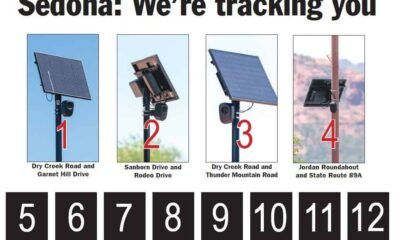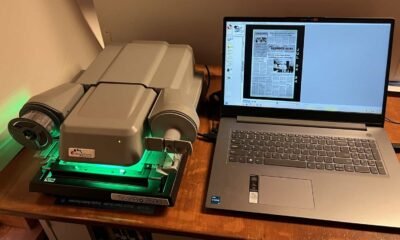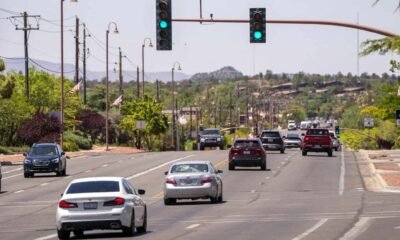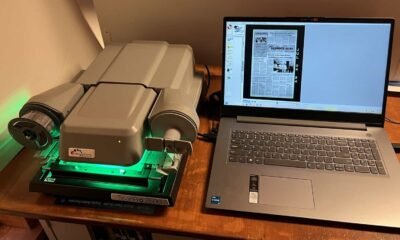ACLU
Sedona Residents Under Surveillance: Tracking Measures in Place
Sedona is set to implement a new surveillance program with the installation of up to 12 license plate tracking cameras throughout the city.
On June 12, a city Facebook post announced that the specific locations of these cameras would remain undisclosed for operational and security reasons. However, City Communications Manager Lauren Browne revealed in an email to NEWS that four cameras had already been placed at the intersections of Dry Creek Road and Garnet Hill Drive, Dry Creek Road and Thunder Mountain Road, Sanborn Drive and Rodeo Drive, and at the Jordan roundabout on State Route 89A.
Browne confirmed that eight additional cameras are planned, with their locations yet to be determined. The installation began on June 2. The total upfront cost for all 12 cameras amounts to $47,600, funded by the General Operating Fund, with an annual maintenance cost of $36,000. Browne explained that the cameras will scan license plates and track matches related to potential crimes, including stolen vehicles and individuals with outstanding warrants or Amber Alerts. Data will be stored for 30 days before being purged, unless involved in an active investigation. “This will expedite response times, as officers will receive instant alerts if a vehicle of interest is detected,” she stated.
Despite Sedona’s declining crime rates — with a 32% decrease over the past 15 years — Browne emphasized that the police department aims for continuous improvement. She described the new cameras as a technological advancement to enhance safety.
The cameras are produced by Flock Safety, a company that operates an expansive network of cameras across over 5,000 communities nationwide. According to Flock’s materials, these cameras profile vehicles based on various attributes, including license plate status and unique markings like damage or modifications.
Critics of similar systems have raised concerns, including the public interest law firm Institute for Justice, which is currently suing Norfolk, Virginia, over its deployment of 172 Flock cameras. They claim that the system can track a vehicle’s movements and history, allowing officers to search the database without prior approval. ACLU senior counsel Chad Marlow has also criticized the expansive reach of Flock’s surveillance capabilities, suggesting it turns into a mass surveillance network that enables extensive tracking of individuals.
Browne mentioned that data collected in Sedona would be shared with various law enforcement agencies, which she believes will foster inter-agency cooperation. While she stated the system won’t be used for general surveillance, she didn’t clarify how retaining information on individuals might contradict that claim. Browne added that residents cannot access footage of themselves, as it is exclusively for law enforcement use.
When asked about the efficacy of similar cameras in enhancing public safety, Browne offered only anecdotal accounts from neighboring communities regarding vehicle recoveries, failing to provide hard data as evidence.
Community feedback has been mixed since the announcement. Comments on the city’s Facebook post reflect a general skepticism, with many residents expressing concerns about privacy, government overreach, and the potential misuse of data.
“George Orwell strikes again,” one commenter remarked, while another questioned whether Sedona sees enough crime to justify such measures. Others echoed sentiments about eroding Fourth Amendment rights. Conversely, some defended the initiative, asserting that law-abiding citizens should have nothing to fear.
Browne responded to these concerns, assuring that the city prioritizes lawful surveillance practices without compromising individual liberties. However, critics continue to voice apprehensions about expanding government surveillance capabilities in their community.


















